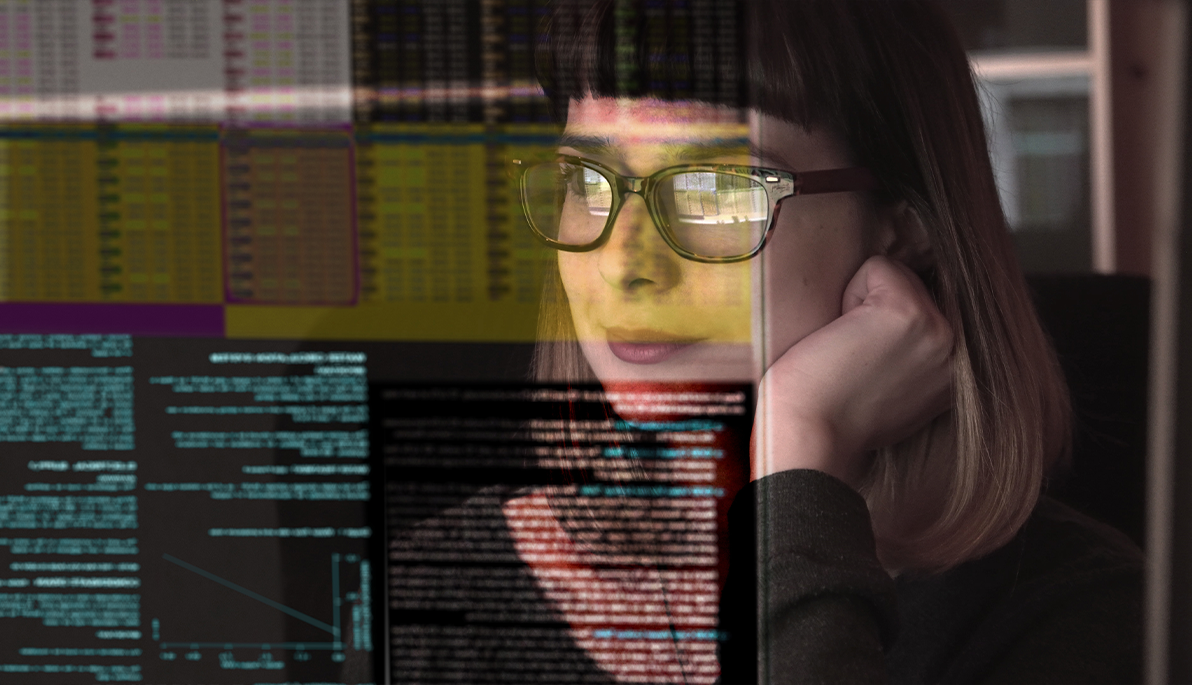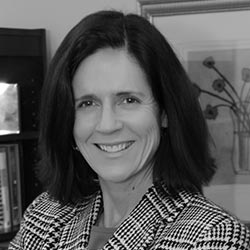
New Course Teaches Students the Power of Data
October 24, 2022
This fall, New York Tech introduced a new course called Making Sense of a Data-Oriented Society (Data 101), which will become mandatory for all undergraduate first-year students beginning in fall 2023. The course, developed in support of the university’s new general education program, will introduce students to the power of data as applied to real-life problems in today’s data-driven world.
According to the course description, students will learn basic statistical concepts, how to identify reliable data, and to think critically about how to extract meaning from data. The course will discuss various biases, including social biases, how they affect data gathering and analysis, and how to address these biases. The course will also address ethical and moral issues associated with statistics, data collection and visualization, and data analysis. Additionally, students will learn how to present a narrative supported by data.
New York Tech News sat down with three driving forces behind the creation of the new course—Radoslaw Nowak, Ph.D., associate professor of management; Francine Glazer, Ph.D., associate provost for educational innovation and director of the Center for Teaching and Learning, and Monika Rohde, senior associate dean for the Office of Undergraduate Student Success and Advising—to learn more.
Simply speaking, what is this course about?
Radoslaw Nowak (RN): Due to technological advancements of the last few decades, we have become surrounded by easily accessible information. This information does not only entertain us, but it can also influence what decisions we will make as individuals and what decisions we can make as a society.
Data 101 is about how this accessible information can impact the decision-making process, meaning, how it can influence decisions that we can make in various aspects of our social lives such as economy, culture, or politics.
We designed this course as an interactive platform that allows our students to engage in critical thinking to become better equipped to ask the necessary “why” question, the question pertaining to how and why such information can be used, or perhaps misused, to tell different stories about our world.
Why (and how) was the course developed?
RN: This course was developed by an interdisciplinary group of the faculty and staff members who worked together during the last academic year as a part of the undergraduate curriculum development initiative. This interdisciplinary group recommended that our university should update the current curriculum by introducing undergraduate courses that will equip our students to better understand the changes occurring in our society and help them develop necessary skills required by employers.
Francine Glazer (FG): I have worked with many faculty—as individuals and in teams—to develop new curriculum. The excitement, dedication, collaboration, and commitment of this group of faculty members in developing this course was truly unparalleled. In a series of weekly meetings, each member of the group presented a week’s worth of resources for the course, and the entire group critiqued and improved it. Frequently, other faculty members then revisited topics already discussed to make additional changes in light of the new discussions. The pilot year, including student feedback, will yield even more improvements. I am very excited to see this project come to fruition.
Why will it be mandatory for all undergraduate first-year students?
FG: As part of our new general education program, this course is required for all undergraduates. In today’s world, we are constantly bombarded with information that we need to make sense of: COVID vaccination rates, election redistricting, inflation rates. So much of our world relies on information. If our students are truly to be engaged citizens, they need to understand how to question conclusions that are being made and the resulting actions being taken.
How have recent current events been an impetus for the course?
RN: As an institution of higher education, we must be connected to our external stakeholders, local communities, and society at large. We can stay relevant and economically successful only if we recognize and respond to new emerging trends. A combination of economic, political, and societal changes (e.g., technological advancements, the needs of employers pertaining to data literacy, or political changes) required that our university amends its strategy to better address such new needs of the market. I believe that this course is one of the examples of such actions introduced by New York Tech.
Why should this not be viewed as a statistics course?
RN: This course is not a statistics course. The course is about “storytelling,” meaning it is about how we can use available data to explain what is going on in our society. Of course, to talk about the impact of data on different aspects of social life, we must introduce and use some common language; this is why we introduce and explain some key concepts from statistics. To illustrate, we explain the difference between correlation and causation and why the students should be able to distinguish between them. In this way, this course’s content can overlap with the content of statistics.
Radek, you are teaching the course this semester. How is it going?
RN: As in the case of any new course, I was not sure what to expect. Thus far, it has been a very positive teaching experience. I was truly surprised by how bright, knowledgeable, and inquisitive our undergraduate students are. How they want to learn more, and how quickly they make a critical connection between the data they see daily and the decisions that they make in their lives, asking many relevant questions about the economy, stock market, or the price of rent in New York.
This allowed me to interact with undergraduate students from other New York Tech schools and colleges outside of the School of Management, which enriches my teaching experience, and allows me to learn more about a broader scope of views and ideas.
Why is it important that our students learn to think critically about how to extract meaning from data? What are some of the key takeaways for students from this course?
RN: Among our students are future leaders, doctors, managers, or engineers. They may soon be in a position to make critical decisions that will shape the future of this country. Moreover, the development of key skills such as critical thinking, analytical skills, teamwork, data literacy—which are emphasized in this course (and viewed as critical by many employers)—should also allow our students to become more competitive and successful during a future job search.
What have some of the challenges been in planning and rolling out this new course?
Monika Rohde: Adding a new course to the curriculum, especially one that will be required for an entire incoming class, certainly has its logistical challenges. We have done it before and know that those challenges can be handled with proper planning. What will be less of a challenge is our students’ enthusiasm to take this course. Professor Nowak and the team that worked on developing this course made the brilliant move of offering it as a pilot this fall semester. The sections filled in no time, and students actively expressed interest and curiosity of the subject matter. We now have about 100 students from whom we can glean feedback and make tweaks and improvements, as needed, for its larger launch next fall.
You shared that only a small percentage of U.S. universities are offering such a course today; why do you think so few are educating students about presenting narratives through this lens?
RN: I believe that other universities will have to catch up in the future by offering similar courses. In this aspect, together with some prestigious universities, New York Tech became a leader, an innovator in our industry. We recognized early on the changes occurring in the external market and responded quickly by introducing a new product: a new course that addresses such changes. This will distinguish us from others, from those universities that were not yet able to recognize the tremendous impact of data on societal changes.
This interview has been edited and condensed.
More Features

An Alumnus’ Commitment to the Environment
As an energy management graduate from New York Tech’s Vancouver campus, Jasdeep Gulati (M.S. ’22) is highly invested in educating people about environmental and climate sustainability.

Vancouver Faculty Win University-Sponsored Research Awards in New Program
The new Global Impact Research Grant (GIRG) program has been developed to keep Vancouver-based faculty connected to faculty and research projects being conducted on the university’s New York campuses.

Studying Climate Change One Degree at a Time
Junhua Qu (M.S. ’24) began her collegiate journey in Beijing. But, her interest in climate change took her to New York Tech’s Vancouver campus to study energy management.
